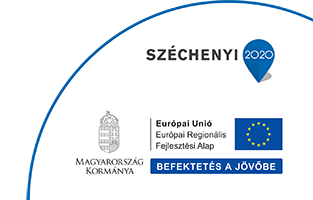The storage of green energy is a key issue for a truly sustainable future. Thanks to its over 75 years of knowledge and experience, BorsodChem also aims to become a key player in this segment, in order to strengthen its role as one of the largest employers and taxpayers in the region.
That is why BorsodChem is creating an LFP cathode raw material production plant at its Kazincbarcika site, which is considered pioneering in Europe, high-tech, safe, and fully compliant with environmental protection requirements in the long term. In Europe, the only plant using similar technology is currently operating in Germany.
“Our plant, with a capacity of 30,000 tons per year, will be established within our Kazincbarcika site, in our former fertilizer warehouse. This way, no new land is required for the construction, and we can give a strategically important new function to one of our emblematic buildings as well. As a result of the investment, more than 50 new jobs will be created. This will also help us maintain our position as one of the largest employers in the region. We have recently submitted our IPPC permit application to the government office,” – explained László Kruppa, President of BorsodChem.
LFP cathode raw material plays a significant role in the green economic transition: by being built into various units suitable for green energy storage, it ensures the closed and safe operation of systems. Thanks to its increased safety, cost-efficiency, and long lifespan, LFP technology, representing a new generation, is increasingly used in energy storage systems, consumer electronics, and vehicles from several of the world's leading automakers.
The manufacturing process of the material is sustainable, closed, and safe. The raw material used is a stable compound primarily composed of iron and lithium, which is non-explosive, non-flammable, and non-toxic to humans. The entire processing is conducted in a fully enclosed and fully automated system, ensuring that raw materials never come into contact with operators. All production equipment meets strict EU standards and is widely applied across other industrial sectors in Europe. The discharging, feeding in and loading of materials take place automatically, without human contact.
“LFP is environmentally friendly, non-flammable, non-explosive, and contains no solvents, therefore the investment will not have a significant impact on the environment. BorsodChem is already operating in full compliance with all current, strict environmental regulations and all prescribed safety requirements, and this will remain valid for the new plant as well,” – emphasizes László Kruppa, President of BorsodChem.
There are no uncontrolled emissions during the production process. The technology is closed, and only solid raw materials are involved in the process. The dust-containing air and gases generated during production are filtered with a two-stage dust filtration process. The treated air is released through a chimney with regular monitoring of compliance with regulatory limits. The production process essentially generates only solid technological waste: a small amount of material with high iron-content, which, together with the used packaging bags, will be handed over to partner firms specialized in waste management.
Therefore, the investment will not have a significant impact on the daily lives of local residents: the traffic of the site will increase by no more than 20 trucks per day, and special attention is paid to compliance with strict noise protection limits even during the planning stage of new activities. Since the technology does not require water, it only produces a negligible amount of wastewater due to minimal laboratory requirements. Thus BorsodChem water consumption will not increase significantly, and the operation of the LFP plant will not affect the soil or groundwater. There will also be no significant change in electricity consumption either.
The local production of LFP raw materials will significantly reduce the overall cost of energy storage systems. When combined with rapidly expanding renewable energy sources such as solar power, this cost advantage enables more efficient and affordable integration of clean energy into the grid. Ultimately, households will benefit from lower energy expenses, as localized LFP supply not only enhances supply chain security but also makes renewable energy solutions more accessible and economically sustainable.
Trial operation is planned to begin in the end of 2026 at the facility.
